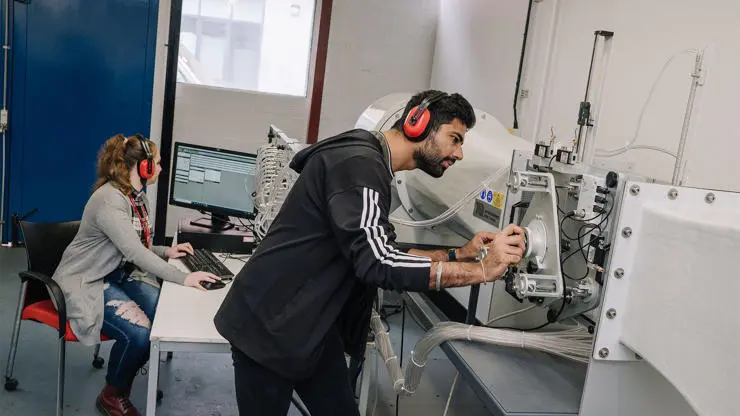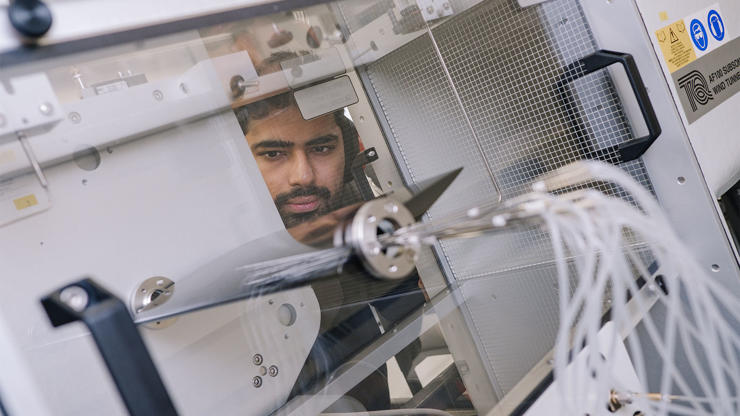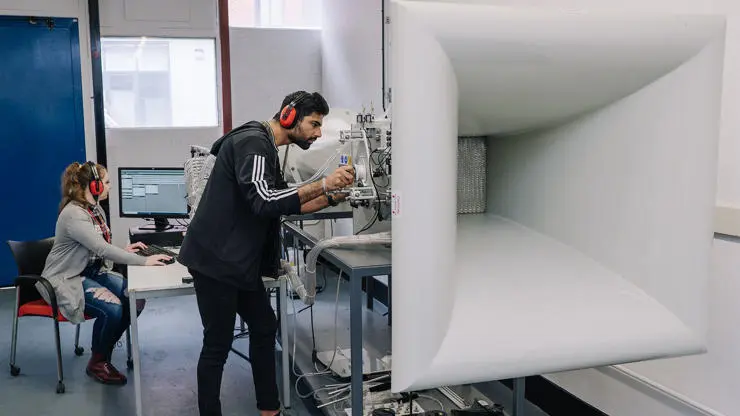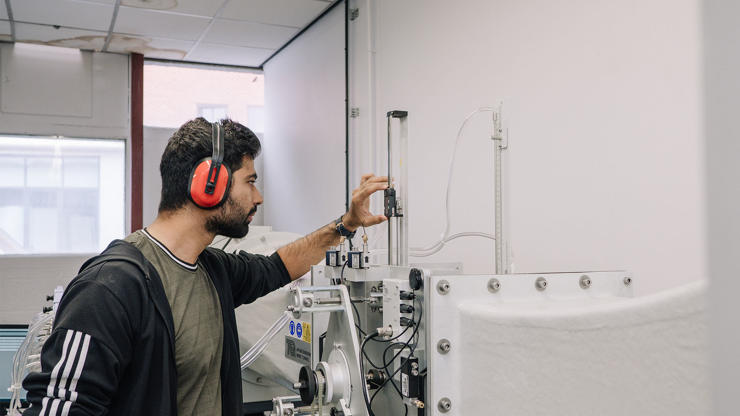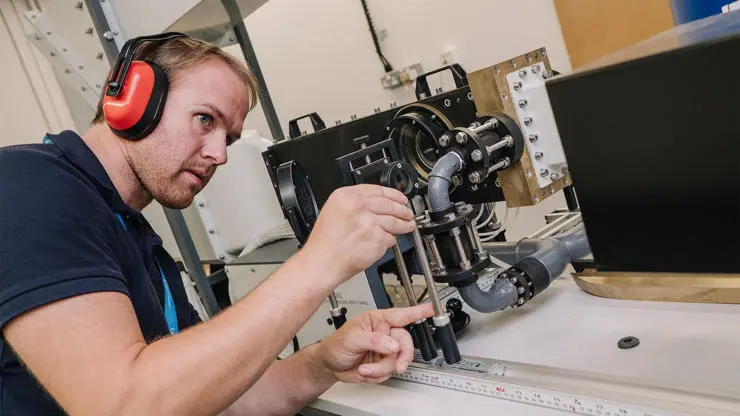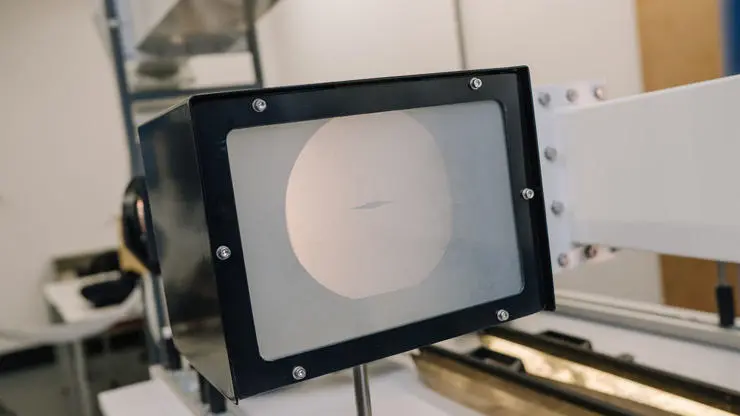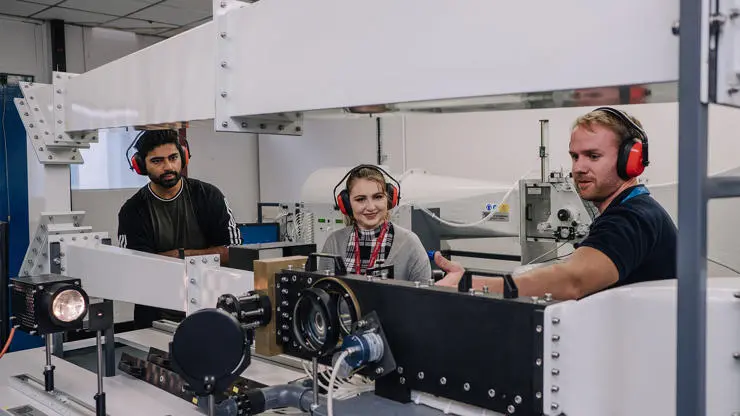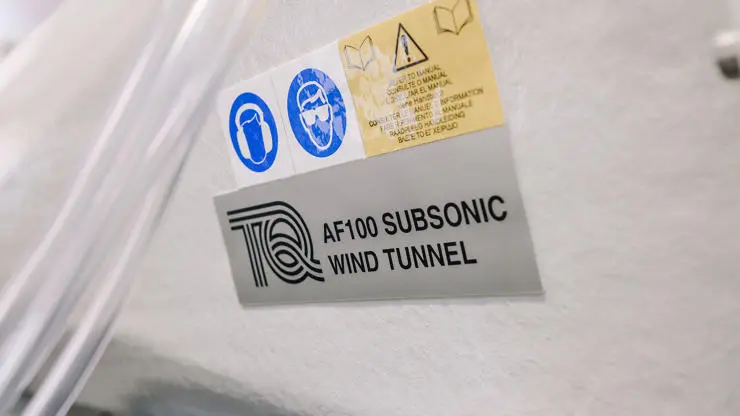Our foundation year will prepare you to progress onto the Aerospace Engineering MEng (Hons) degree. You'll understand engineering principles and gain key skills.
Why study with us
- Top
10in the UK for academic supportNational Student Survey (Aeronautical and Aerospace Engineering) (compared with unis in the Guardian University Guide)
2023 - Top
10in the UK for overall positivityNational Student Survey (Aeronautical and Aerospace Engineering) (compared with unis in the Guardian University Guide)
2023
- Our foundation year has been designed to cover the key areas of engineering.
- You'll gain practical, hands-on skills in our excellent engineering facilities.
- Once you've completed your foundation year, you can progress onto our Aerospace Engineering MEng (Hons).
What you'll do
- You'll understand fundamental engineering principles, which will help you in your degree.
- You'll use design software like MATLAB, gaining skills that are valued in industry.
- If you progress onto the MEng, you can complete a paid year in industry.
Modules
Every effort has been made to ensure the accuracy of our published course information. However, our programmes are subject to ongoing review and development. Changing circumstances may cause alteration to, or the cancellation of, courses. Changes may be necessary to comply with the requirements of accrediting bodies or revisions to subject benchmarks statements. We may also make changes to keep courses updated and contemporary, or as a result of student feedback. We reserve the right to make variations if we consider such action to be necessary or in the best interests of students.
Accreditations
Meet our expert team
Future careers
Aerospace Engineering graduates go on to roles in the aerospace, space, defence, automotive, biotechnology, computing, electronics, energy and manufacturing sectors.
Entry requirements
We will consider your educational achievements, predicted grades, work experience and personal statement. If you don't meet the grades for your chosen course, we will consider you for other programmes.
We know that many factors can influence the grades you achieve in school or college. If your life experience has affected your academic studies, we can take this into account. Use the UCAS Points Calculator below to check whether you are eligible.
Unsure if you meet our entry requirements?
Contact our friendly Course Enquiries team to talk through your options.
Minimum qualifications:
- UCAS: 64 points at A2
- BTEC Extended Diploma: MPP
- BTEC Diploma: MM
- Pass Access Course: 64 points
- International Baccalaureate Diploma: Pass including 64 points from Higher Level subjects.
- T Level: P (D or E)
- IELTS: grade 6.0 with no component lower than 5.5
- GCSEs: 5 at Grade C /4 including Maths and English or equivalent
- Note: An ATAS may be required for overseas students – students are advised to ‘Check if you need an ATAS certificate (https://www.academic-technology-approval.service.gov.uk/)’ using CAH code CAH10-01-04
Use our UCAS points calculator
Discover how many UCAS points your qualifications are worth
Fees and funding
Scholarships and bursaries
We have a wide range of bursaries, scholarships and funds available to help support you whilst studying with us.
Select your country to see eligibility information and how to apply by selecting more info on the cards below.
Care Leaver Bursary
Our Care Leaver Bursary is for students who need extra support because they have been in care or are estranged from their parents.
Find out more about Care Leaver BursaryEstranged student support
Estranged Student Support Bursary is for students who need extra support because they are estranged from their parents.
Find out more about Estranged student supportDependants Bursary
Students with financially dependent children may be eligible for our Dependants Bursary as part of our financial support package.
Find out more about Dependants BursaryFoundation Year Bursary
Our Foundation Year Bursary scheme is for students starting a four or five year undergraduate degree programme.
Find out more about Foundation Year Bursary
This course is delivered by the School of Engineering and Computing
For information on possible changes to course information, see our essential and important course information
You can find regulations and policies relating to student life at the University of Lancashire on our student contract page

